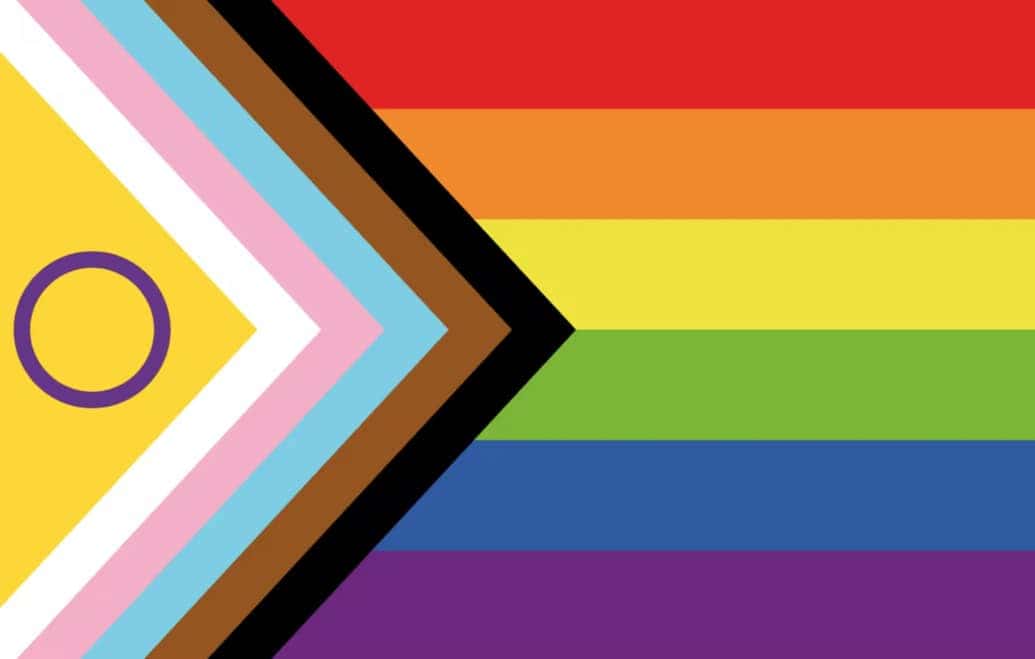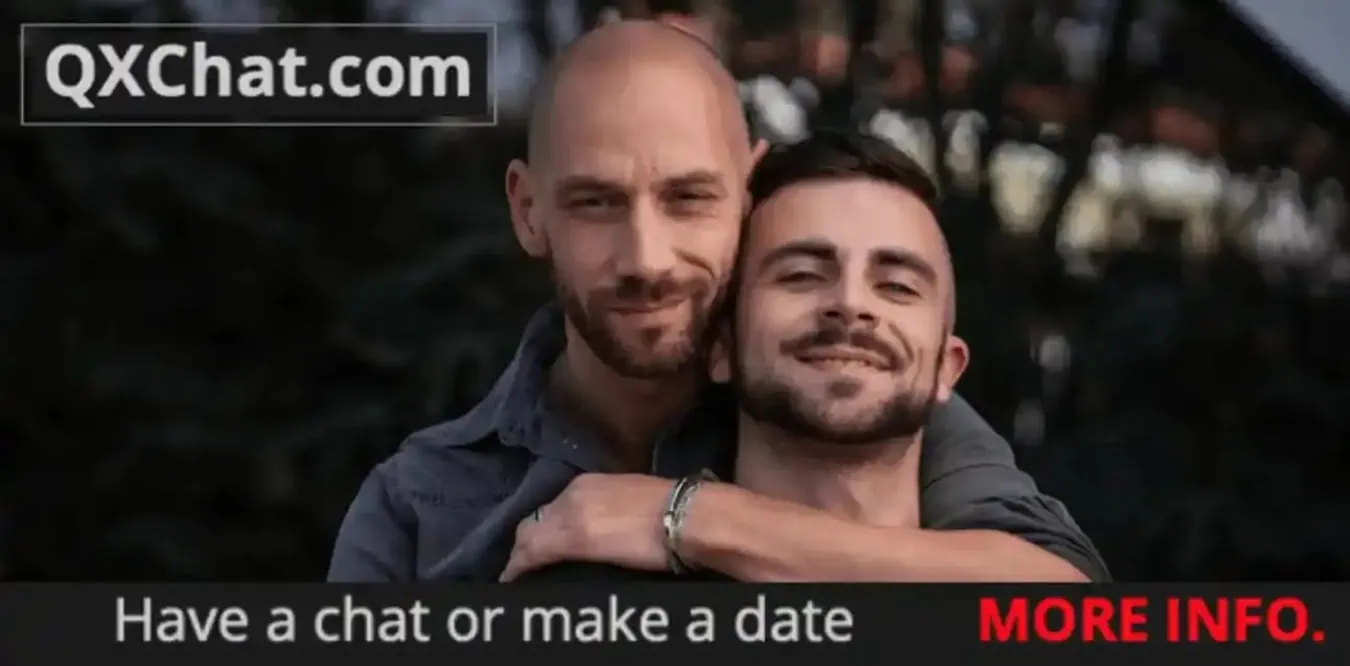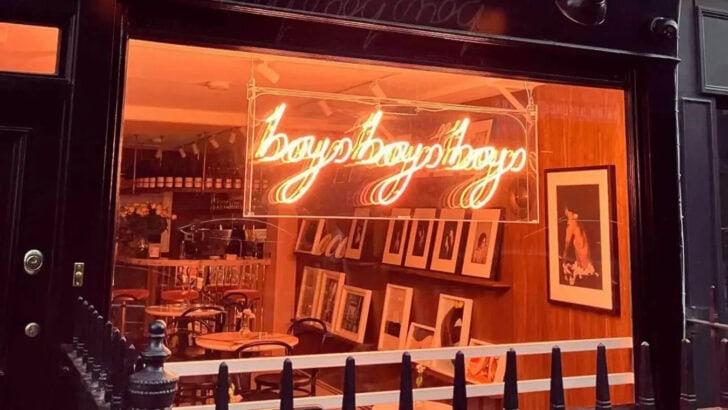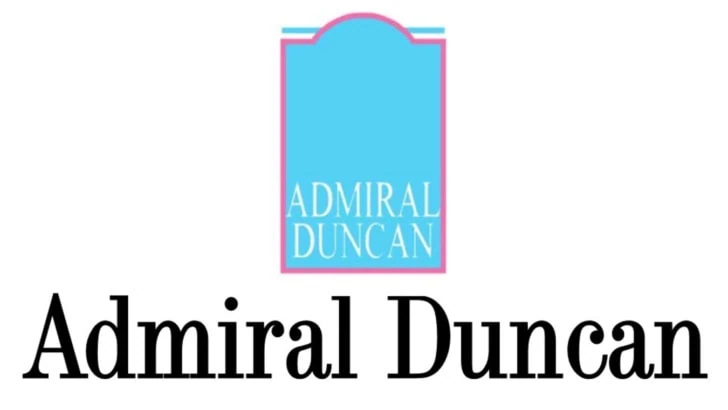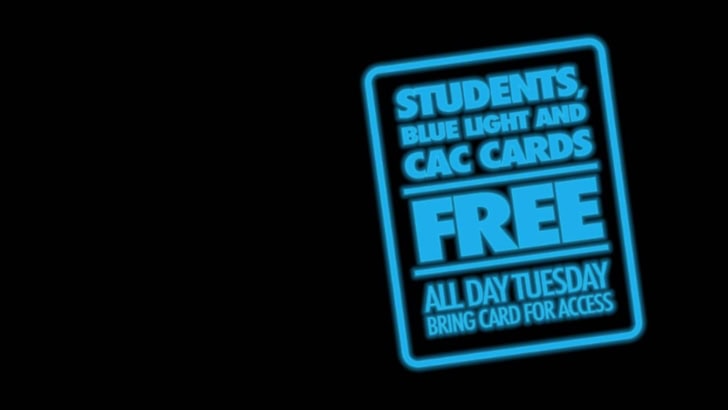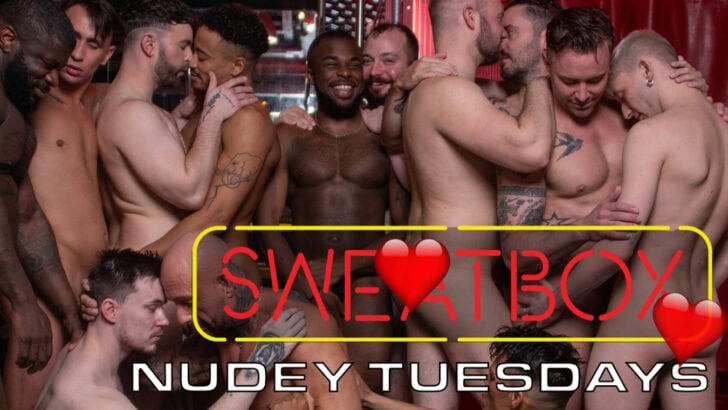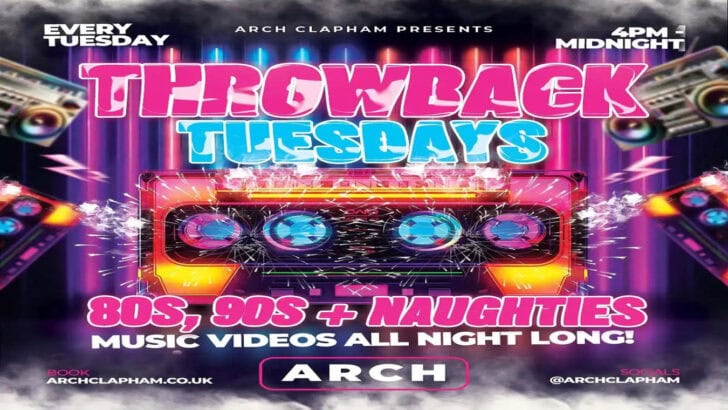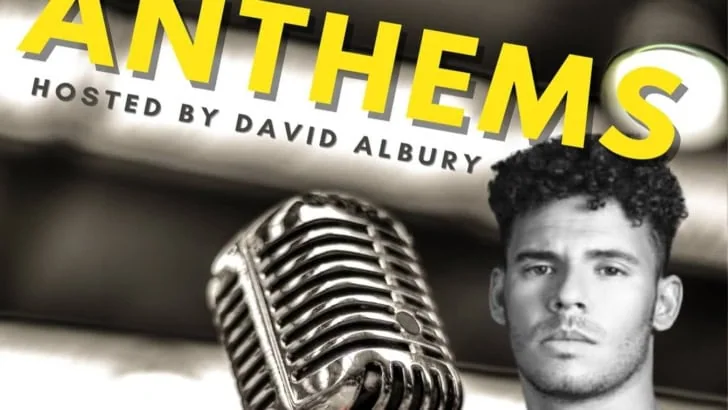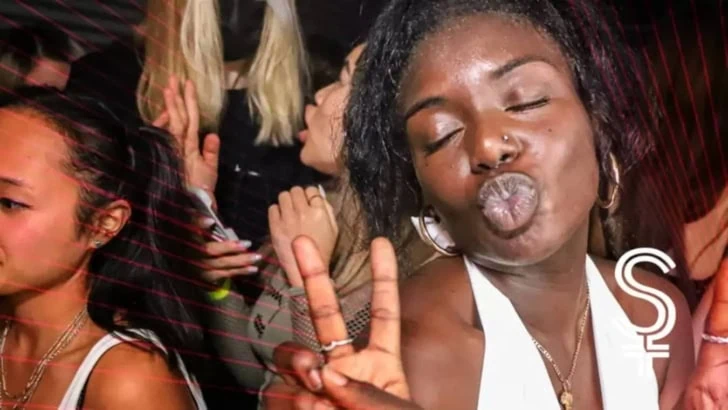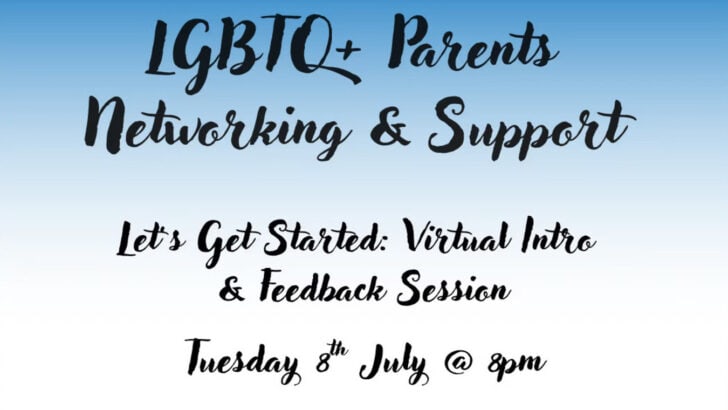Wendyl Harris is one of the foremost LGBT activists and campaigners in London and the UK. We caught up with her to talk about her life, her reasons and her viewpoints.
By Patrick Cash
Tell us a little about yourself.
Hello, I’m Wendyl. It struck me the other day that I’m getting quite astonishingly old now, I fit into the category of ‘older gay’ at the vast old age of 52. Sadly when we’re younger we think we’re never gonna say ‘when I was young’, and I find myself doing that constantly now. Partly because I feel like I should be able to enjoy my elder years in a more relaxed, debauched manner, but I find myself back in the 80s in terms of the repressive, right-wing, conservative cuts – deprivation, distress, poverty. The only difference really is that people seem to care a little less about each other and I don’t know if that’s just a perspective of getting older.
What, even less now than the 80s?
Much more so, much more so. There’s very much less a sense of community and support, from my perspective, than there seemed to be then. And I don’t know if that is actually the consequence of Thatcher managing to do exactly what she said she wanted to do, which was to destroy the idea of society and community: we do have, I believe, very much more self-centred, restrictive, conservative mindsets than we used to and that’s particularly prevalent in the UK. If you look back at films from then and music, even trashy TV comedy, which was all a bit more cutting-edge, relaxed with nudity and political statement, I feel like it’s missing now.
That’s kind of answered one of my questions further on, which we’ll lead into, but let’s get a bit of background first – are you from London?
I’m one of the few original Londoners that you’re going to meet, as opposed to a migrant and then, weirdly enough, growing up as a young person, moving around the rest of the country and abroad with my family, but always coming back to London. And then in adulthood I’ve lived in a few places elsewhere from time to time but I’ve always returned to London.
Why were you moving around with your family?
Oh, it was my Dad’s job.
What did he do?
Well, originally he worked for a car company that got bought out by Chrysler and he suddenly got a big, flashy promotion that entailed we moved around a lot.
Okay – is it true you were in a film as well?
Yes, I’ve probably been in a few actually.
It was called ‘Thin Ice’?
Oh god, yes! I mean I’ve probably only got a thirty-second pastiche in it with one line – James Dreyfus and Ian McKellen were in it. We were filming at Ghetto, and I played the bouncer in leather, trying to look hard and mean. And my only line was when this girly arrives and I was calling her, it was just a flash.
How did you get involved in it?
Friends really. Friends sort of asked me if I would help and I was quite happy to do that. I’m always usually doing things on the sideline.
Is that your ethos – take every opportunity as it comes?
Well, it wasn’t a personal opportunity, because it wasn’t a paid opportunity or anything like that –
Bastards. You should have got some money for your line. You’re suppose to get paid when you speak on film, aren’t you?
Well it opened in Leicester Square actually, so I was on the big screen in Leicester Square, which was quite funny. No, I think the thing is we have a vast and diverse LGBT community with an extraordinary amount of talent and enthusiasm amongst it, but unfortunately not always enough money. But I do think it’s a sort of cycle that goes round and round, it plays into fighting for our liberation and equality. It’s about putting us up there, giving us a fair, square fighting chance that we might not always have as heterosexuals with the contacts and things. And part of doing that and promoting that, is for supporting your friends as much as you can, and supporting any kind of positive projects in the community. So, even though the film isn’t exactly racy, and sadly if I remember correctly the sex scene is just one of those that fades away to a field, no like…
Rumpy pumpy?
Exactly. It was still a positive role-model movie in a sort of lovely, light-hearted ‘coming out’ film, maybe not as great as something like ‘Beautiful Thing’ which was really fabulous, I really loved that. But it was sort of romantic, schmaltzy, does the job.
Okay, cool. And how did you first get into activism? It is what most people will know you for.
I don’t know, I think I’ve always been into it. My father was quite old when he had me, he was born in 1915, so I grew up hearing stories about how as a young man he fought in the Battle of Cable Street and in the 60s, growing up as a young child in the States, you’d see a lot of stuff about the civil rights movement and my father was trying to teach me about positive attitudes, freedom of expression and equality for everybody.
Did your father extend that to gay people?
Well he did, once, again that was really the news item, I don’t think it really occurred to him until things became publicised on the news so I remembered very clearly the Stonewall Riots from the news reporting, and that’s where he sort of extended it then. But at the time I was still very young, so with your parents you just yawn and go ‘yeah, whatever.’ But it’s what I was bought up with, those kind of attitudes. Also I think I’m extraordinarily lucky because I’ve never really met with very much negativity in my very young formative years, even though I’m not like a stereotypical, beautiful girly, and I’m a sort of rough-and-tumble, fat tomboy, you grow up and my father was telling me how beautiful I am and this and that and the other and I can see now in retrospect when you’re old how having negative things thrown at you as a young child must affect your self-respect and the way that you look at things, and I now look back at things and think I’m really, really lucky. I never really had any of that negative shit.
Your father was very influential, what about your relationship with your Mum?
Well, she died when I was four so it wasn’t really a – I kind of have little small stories and memories but that’s it, basically.
What was your first experience of protesting? How old were you and what motivated you?
Probably my first major experience of protesting was that we organised a strike at school. We were back in the UK by then, and I was trying to think how old I was, maybe about twelve or thirteen, it was in the 70s, which older people will always ramble about that really, really hot summer we had, which maybe in retrospect wasn’t actually that hot at the time. And all of the schools around us were getting half-days and not our school, they had the windows nailed shut and it was sweltering, all the other kids were in the swimming pool, so at first we tried to approach the teachers and they weren’t paying no attention so the next thing we organised a massive strike. The word goes out that after lunchtime nobody is to go back into school, to stay out in the playground and thing, and funnily enough I wasn’t really one of the principle organisers, I just helped the principle organisers, but a select number of us, about four or five, actually got expelled and that included me.
That was your first experience of challenging the status quo!
We were just asking for the same treatment as everyone else! I wanted to go to the swimming pool too!
Seems as valid reason as any. So what motivates you to carry on protesting now?
I think the idea is that when I was born homosexuality was still illegal, but that didn’t really apply to lesbians, we were just mentally ill. The law didn’t actually apply to us because we were considered mentally ill, that was how that was dealt with. But coming to my awareness of my sexuality, the law had been struck out, even though the age of consent was ridiculously high and you’re aware then that other people have gone before you and voted before you, and you start learning more about stuff like the Stonewall riots, what lead to it. Years and years of police brutality and rage, and always rounding up the butch dykes and the drag queens, people who were really obvious and most vulnerable, and blackmail and stuff like in – what’s the film? Victim, quite an astonishing film if you think about the year that it was made, 1963.
Is it about the gay struggle?
It’s a UK film with Dirk Bogarde, and he’s being blackmailed and in a way there will be bits in it that will make you cringe a lot because the police take sympathy with Dirk Bogarde, but they’re sympathising with him but the way that they talk about it is ‘oh these poor wretches, vulnerable to blackmail, I wish the law would change’ so in the years between the Wolfenden Report and the law actually changing, you saw the film industry, some media and lots of different groups actually working on our side to help put the pressure on and changing the law. Even things like ‘The Killing of Sister George’, they were all sort of pre-1961 films but very much in that lobbying period.
Subtly changing society’s attitudes?
Maybe not attitudes but certainly putting pressure on to change the law, when they said ‘those poor wretches should at least be safe in the privacy of their own sexuality’ kind of thing. So you’re always aware that somewhere along the line people have fought before for you, and then you come out into an environment where the struggle continues. So you know I’m coming out really just as HIV hit in, and that’s a whole huge story of its own. It was inconceivable that as communities we wouldn’t all fight against and fight against the system of what was going on. Because I had a lot of links to the States I used to spend a lot of time in the States and New York, and help with some of the Act Up stuff that was going on there. It was kind of like coming and going a lot of the time, so I’d pop over for the weekend sometimes –
Where did the links in New York come from?
People that I knew, we used to travel around the different sort of clubs and activities and stuff like that, so I’d go for my long weekends in New York and as soon as you’d land you’d change and head off to the Clit club in the Meat-Packing industry.
What made you go to New York in the first place anyway?
Well, I’d grown up partly in the States anyway, though we weren’t ever actually based in New York. I’m not quite sure why New York became a particular draw at certain times, it might well have been the whole Stonewall riots thing in the back of your head, if you think about it in those sorts of terms because that’s the first real image that I ever had of homosexuality, so maybe that’s place that you’re drawn to. But then the HIV right was not really on the same par in the UK, because the advantages that we had with the NHS meant that we didn’t really have the same fight in the same ways that they did. Obviously we had a lot of other fights and challenges around it, in terms of discrimination, but different types of fights. That’s really I suppose how the growth of OutRage! came about if you look closely, a lot of people that did a bit of ActUp London mutated into OutRage!, with the old OutRage! logos and catchphrases and things like that were very much mirrored the ActUp New York images, and a lot of the style of the early protests we used to do were very much close to their high-profile stunts.
So you were part of OutRage! in the first place? Did you set up OutRage!?
No, no. I don’t think anybody can be said to have set it up, I’m not quite sure now the history of who called the original meetings, it might have been Peter Tatchell himself. It was 1990, kind of as a consequence of a range of things that had been going on, there was an increase in police entrapment, cottaging, easy convictions, we had a serial murderer going around, Colin Ireland, and because of the way the police were treating us and increased abuse from the general society of HIV and AIDS, it meant that at first they were doing very little about tracking down and getting on the case because gay people were being murdered, and they didn’t really have any links and connections. So I think that was also the start of an improved relationship with the police, but the entrapment thing, HIV abuse, we were seeing spanner cases –
What was the entrapment?
Cottaging in parks, basically. Setting out the police in attractive civilian clothing so that they would do entrapment. There was a big article that was written up somewhere on another case that a large percentage of the people who got caught in entrapment never fought the conviction that came at the police station when they just think they’ve been slapped on the wrist. And people don’t really understand that that went on their criminal record and that they were now on the sex offenders register, so people would accept these slaps on the wrists not really realising what the consequences were. And the few people that would challenge it of course, who were out and had nothing to hide and were not at risk of losing your job and persecution etc, as far as they know almost everybody that challenged it through the courts was never convicted. And there was one really classically amusing case whereby some guy pleaded not guilty and the police have their little book with their evidence ‘he came in and he had his erect penis out and when I challenged him he stuff it back in his jeans’, but the guy’s evidence against this was, with doctor’s certificates and all the rest, was that ‘his cock was of such proportions that had it been erect it would not have been possible to get it back into those jeans’. It was like the best case you could ever have to illustrate just how much of victimisation and lies were coming out of the police! Just like in the pre-1969 thing of blackmailers they had found an easy target audience to boost their conviction rates. And they were going for it, hammer and tongs.
Do you think there are parallels between that and the reported current policy of the Met police to stop and search black male youths in the street?
Absolutely. It’s always like ‘if we want to get our rates up, who’s the vulnerable group that we can find’ and we were at that time. You know, we had things like the Spanner Case too –
What was the Spanner Case?
The Spanner Case, this was a case of a group of consenting gay males meeting up at each other’s houses for a bit of S&M ‘bigga-bigga-boo’ and they had been under surveillance by the police who eventually swooped and arrested them all. They stood trial and it was where you had the classic thing of they were convicted, and some people had marks from the S&M, and the judge’s summation was the question of consent is immaterial. But they weren’t preying on any straight S&M clubs, there was even a straight S&M hotel with no problems, but the spanner case was – they got charged, they got arrested, they got put in jail, this was the early 90s. They actually took it to the European Court of Human Rights, it took them years to be exonerated and in the interim several of them went to jail, and you know the comedy of being beaten up and gang-raped in jail, non-consenting, you go to jail for entering a bit of consensual slap and tickle, and then have non-consenting rape which nobody ever got done for.
So OutRage! took on all these cases?
It wasn’t that we took on all these cases, it was a sense of growing outrage amongst the community where people were just muttering away ‘well, what’s next? What’s next?’
What was your greatest success as part of OutRage! or was it just the general work that you did?
What was our greatest success? I don’t know, to be honest. Some people might say that it was the same-sex marriage that was starting this weekend. People forget that when you have the very much conservative gay attitude that we have now: ‘why do they have be so load or so troublesome, those screaming queers!’ they forget that it’s an OutRage! action in 1991 or 1992 where we tried to register for marriage certificates in Westminster fighting for marriage equality, in 1993 I’ve got an old newspaper clipping that’s actually scanned into my Facebook, that whilst I was in the Sisters of Perpetual Indulgence we did a marriage service at Reading University to two lovely young chaps in suits and things in the Student Union Hall – packed to the rafters it was and this paper clipping was just us all skipping through the grass. And you know this was more than twenty years ago, I’m grinding my teeth a little about this weekend…
What is your opinion about gay marriage?
I get irritated that people keep talking about this as marriage equality, because it’s not, it’s the same-sex marriage act, because separate legislation which has been set up specifically for us and it’s not full equality because there are still some loopholes and still some issues. So you know we’ve come a long way, it’s still not equality, I really hope that people kind of keep that in mind, and continue the fight and push for the next step which would be one marriage law for all. That’s what equality is about, not separate laws with catches in them for different people. And also the thing about ‘these are the first gay weddings’, that’s rather insulting to all those people who went through commitment ceremonies privately before we had anything in legislation, to all those people that tripped off for their CPs (civil partnerships), because for most of them that was a wedding. Even I was foolish enough to go down the civil partnership route.
Would you have to dissolve your civil partnership to get married?
Well, I am properly divorced now. It is a slight bollocks, isn’t it? I’ve got a dissolution, everybody else has got a divorce. Rubbish. I’ve got a divoce. I am that ‘gay divorcee’! Best day of my life, getting divorced. But that’s only because we shouldn’t have done it, we did it because the law had changed and we could, not because we should and I think a lot of people made that mistake, of all genders and backgrounds. Straight people make that mistake too, you know that some people get married because you can, not because you should. Yes, I would probably get married again but I like to think that I will be very much more circumspect and sensible about it. I won’t get married under the current same-sex marriage act because it’s not proper equality and I will wait now until it’s proper equality. Unless of course somebody wants to keep me in the style in which I’d like to become accustomed.
Either connected to same-sex marriage or marriage equality, do you see the whole idea of marriage for gay people as a step forward or assimilation by a government that wants us to stop being so loud and different? A de-radicalisation?
I don’t think I can agree with either of those exactly, I think there’s another root – I mean yes, there is an element of assimilation to it, but at the same time we’ve all grow up in a society where that’s what we’re taught, and what do a lot of people want? You meet the person of your dreams and you want to be able to settle down with all the trimmings and the picket fence blah, blah, blah – a lot of people want to do that, and whether other people have got the right to say ‘no, you shouldn’t do that’ or ‘yes, you should’ is neither here nor there. The whole idea of marriage equality is that everybody should have the right to do what they want, not what somebody else tells them they can have, which is why I get agitated about the same-sex marriage act being called equal marriage because we are still having a government controlling us and telling us what we can and can’t have. I think marriage equality is perfectly fine, any marriage straight or gay is what we make it at the end of the day, and everybody should have the right to choose that.
Okay. How do you personally view the gay community of London in 2014?
I don’t think that there is such a thing as one gay community anymore. I know you and I are talking very much in terms of using the word ‘gay’ in the way that you do in the old days where it was a generic term but now we’re in 2014, most of us kind of have a bit of a better understanding and insight that there’s not just one community but we are lots of different communities with all the different letters and issues that go with it. I would like to think that we could use the generic term because we were one community and we stood together and supported each other but it’s quite sad really in 2014 to see the divisions between lesbians and gay men are just as bad as they ever were in some areas and the divisions between the LG and the BT, the way that the transgender community is still massively discriminated against just within our own communities whereas it’s supposed to be LGBTQI duh-duh-duh, but the lack of education that exists just amongst our own communities about different types of gender identity is quite disturbing. What’s the excuse? I don’t understand. I’m 52, if I can get a grasp of it, I expect the younger generations to be able to do it, it’s not hard. And if all of us at one point or another can put our hands up and say that we understand what discrimination is like, even though it’s just to the point of being called a fag through to much worse, I believe that all of us are going to experience that at some point or another. Why wouldn’t we be concerned and supporting all of our fellow communities who also continue to experience discrimination, and then we go into the racism aspect, what about our BME (Black and Minority Ethnic groups) LGBT communities? I do find that quite disturbing, I don’t really expect to see the kinds of divisions we have in terms of racism in this day and age within the queer communities and yet it’s still there. In fact, I think it’s worse. I look back on my past and seem to remember a slightly better cultural mix.
Do you think that’s because of what you were saying earlier about people being taught to pursue individualism and it’s actually taking away these bonds – and I guess the gay community has been trying to forge itself, and in the 80s you see a dissolution of community through the Thatacherite government and the AIDS process and maybe that’s why there’s this disparate, fractured sense of community.
I don’t really understand because some of the biggest and best advocates we’ve had fighting for LGBT rights have been Black and Asian in this country and yet as a community you walk down Old Compton Street and the mix really isn’t there, yet go to some of the clubs where more black and Asian LGBT people frequent and the diversity is still kind of lovely. I don’t suppose as a white person myself going to say somewhere like –
Club Kali?
Yeah. I wouldn’t feel ostracised or awkward. And I know that the same isn’t true for some of my friends who are black and Asian going to predominately white person venues. They experience a real sense of discomfort, they still get remarks made at them, I mean what the fuck?! I mean, I don’t experience that going to black and Asian clubs. What is wrong with us? It’s 2014, get a grip. The EDL is profiting from recruiting – they have a LGBT branch! Because they understand the principle, the age-old principle that’s been going on by government for centuries to set people against one another. Whilst on one hand they’re creeping around, beating the crap out of us down side-streets, on the other hand they’re encouraging people with idiot mentalities to go and beat the crap out of somebody else.
It’s a hard situation when you look at it in that way.
It’s a depressing situation because now that I’m old I really wanted to see us moving on a bit. I think we should have evolved a little more than we had. And in some ways it’s all very well with the same-sex marriage act but we haven’t even got these basics right.
How do you think we could get the basics right, do you think it’s greater education and greater communication that we need?
No, I don’t think that’s a difficult question at all, I’m really always clear about that. The only way that we are going to achieve liberation – and that’s that whole political dialogue that we have that we can’t have equality without liberation – that we do need to address education. Nobody is born a bigot. These are patterns of behaviour that we learn according to our socialisation and whatever we’re exposed to, and the way to change that, to stop people being murdered on our own streets – gay people are still being murdered and beaten the crap out of – is that we have to forge a change in attitude and that happens in education. And some of the best groups going about doing that are the whole LGBT History Months and Schools Out groups. They work incredibly hard with virtually no money and funding, we forget when we debate about which political party is best that again most of the major anti-discrimination policies originated with the Labour parties and I’m not advocating this as a personal political party broadcast but they also gave the LGBT History Month some legal recognition in education. Bear in mind that there are only two countries in the world that have a formalised LGBT History Month. At the moment, only the UK has any official access to education.
Which is the other country?
In the US. They have theirs in October whereas we have ours in February, we have our Black History Month in October and they have their LGBT History Month in February. So we do it the wrong way round to each other, but you know just as Black History Month was created to try and educate people, especially young people to break down the barriers of ignorance, and also to show some kinds of respect so we educate people about the contributions these different groups and minorities have made to society in general but also to give some respect to the pioneers if you like or our role models. It’s about creating role models as much as anything else. And that I believe is where we will effect change. It needs more funding, it needs more support from our own communities, still a disturbing amount of people in our own communities are not aware of LGBT History Month, they don’t always go to all the events. They don’t see what amazing work is being done by effectively small handfuls of people in schools across our country, and if there’s anywhere that you can point to that is evidence of decreasing discrimination it is because of those projects. Because of all the amazing people that work across History Month and Schools Out project, because more of us need to be involved, if we’re going to think about the future of our young people, we can stop people being beaten up on the street, abusive words, our young people feeling confused and frightened and trying to kill themselves, in takes all of us being involved in changing perceptions and making it more positive and equal work for everybody. That’s the easiest question!
Okay, you’ve answered about tackling apathy in this one, but have you experienced homophobic abuse in the UK yourself?
Yes.
Can you give me an example?
Well, just the other day at work – I mean, you know, it’s at least a weekly occurrence. I tell a lie, it wasn’t even at work. Just the other day before I went to work, I wear a uniform, I work in a public service, and I’m just in Robert Dyas just up at Warren Street and there’s a guy probably around my age, maybe a bit older, pork-pie hat, leather coat, so you know you’d sort of think that we’d have some shared experience, similar clubs, this that and other. And he’s calling me names walking into the shop, it’s just unbelievable. How is that okay? And I find that actually I get called more names now than I ever remember being called in the past.
Why do you think that is?
I think it’s the kind of society that we have, it endorses it and makes it seem okay. I regularly receive all sorts of threats and abuse at work all the time, and even though my employer is a diversity employer and has great anti-discrimination policies they do nothing about it. Absolutely nothing. Supposedly recognized in the Stonewall Index, which is rubbish, paper exercises – why don’t they start pouring some of their money into things that speed output?
So you have reservations about Stonewall?
I think that any and all groups that are doing some sort of organising work matter and have their place. I would probably say on a very personal level I don’t feel that all of those groups are necessarily going about it in the right possibly way. How’s that? Bunch of cunts! I mean, this is with the experience of old age, they’re the only people who actively worked against us in the age of consent thing, when we were taking on the age of consent racket and I also used to work at Switchboard, and so we had all these organisations out there, every organisation you could think of, all working together, focussing on the campaign for the age of consent from 21, and we all agreed on a policy of sixteen or nothing because a compromise would be worse and we’d have to start fighting all over again, so if it you’re going to discriminate against us you might as well leave it as it is. So that was the big push and the only people who wouldn’t work with us were Stonewall. They wouldn’t work with the other organisations and then they were actively campaigning for a compromise. This was Angela Mason, and she nearly got strung up on a lamppost outside the Houses of Parliament. When they had the vote for twenty-one to come down to eighteen and you know it was a cold February, and we had worked really hard, really, really hard campaigning for this, and it had got all the media attention. People were coming down on the buses, and there must have been a thousand of us or more outside the Houses of Parliament, cold in the night, waiting for the vote and Angela Mason’s inside. Derek Jarman had just died a couple of days before and I’m glad that he died beforehand because it would have broken his heart to see us lose. And she comes out of the doors saying ‘we’ve won! We’ve won! It’s eighteen!’ Everybody’s like ‘you fucking bitch! Quick, string her up!’ I mean a candlelit vigil, we’d been freezing for hours, we’d worked really hard on this, no compromise and there was nearly a massive riot outside of Parliament. And then we had to start the campaign all over again, under Labour.
Penultimate question: what are the worst persecutions or injustices against gay people that you perceive today?
I could talk for hours about all the countries where we remained illegal under the law and countries that are considering introducing new laws against us, and probably in actual fact the UK has more than its share of responsibility in why those laws exist. Colonialism; we started the bigotry in the first place. And we went around raping and pillaging around the world, and continuing colonialism, it’s now been promoted by US evangelical groups who have effectively lost the battle in their own back yard, so they’re pouring money into other countries. What happens then is that important health programmes, HIV and AIDS, get affected which isn’t helping anybody. And the crazy evangelicals are pouring bucketloads of money in because they want to take possession of these lands and I just urge people go and watch something like ‘God Loves Uganda’ if you want to see how they behave, brow-beating people into submission. They have a far greater governance by religion and it’s a really vicious, pernicious one and we should remember that when we start dissing other religions and that brings out Islamophobia. Christianity – there’s no religion that isn’t in a sense born out of hatred. So back to the original question, what’s the worst thing? There’s all those and I think the worst thing is the self-hate that lives within so many of our own. Because the damage there perpetuates the way that we behave within our own societies and communities, so the negativity that we’ve grown up with is like brainwashing, the damage done is very deep, and we have supposed leaders in our communities who can’t even say the word queer and snigger and giggle –
Is it to do with shame?
Yeah. Gay shame. Amy Lamé, God love her, has got it so well with Duckie: Gay Shame. It’s gay shame.
And finally, who are the most inspiring figures for you on the London gay scene right now? And are you optimistic on where we’re going?
The list is huge, actually. Sue Sanders is probably one of the most inspiring figures and I have a lot of friends who are in performance and the arts, I mean Ellie Barnes who works on the Schools Out project, amazing, Peter Tatchell, and one of the most inspiring groups at the moment is the Out and Proud Diamond Group who are a group of out and proud African LGBT refugees who have organised themselves into a very effective campaigning group, in the face of massive adversity that we can’t even conceive of in our comfortable little lives, and they’re out there at every turn supporting everyone else’s struggles, bringing their banners, coming along on their bikes, at the anti-Sochi one, the To Russia With Love campaign, they’re out there supporting everybody, but unfortunately not everybody is supporting them, with the protests that we’re having about Nigeria, Uganda, and things like that. Again it’s back to the whole point of racism in our own communities. They’re an amazingly inspiring group because I don’t know how they do it if you think about what their experiences have been, literally running for their lives, you know, and some of them are in detention in this country. They’re operating here in London, they’re operating as a massively inspiring campaign group. In fact I’m hoping to raise a support team to help fund somebody to come along to Euro Pride and Stockholm. I mean I could reel off a hundred and one names of artists etc and it’s like the people who write, the people who paint, the people who make music and perform and stuff, every one of them are role models. They’re challenging, they’re talking about it, the visibility, it’s the feeding our souls. It’s about keeping that love going.
And finally finally, are you optimistic where we’re heading as a gay community in relation to straight society?
Not if we keep on the same path as we’re going now. We’re not making enough of a sense of the areas that matter: the same-sex marriage act is worth nothing as long as our kids are still killing themselves, and we’re still getting kicked in the teeth in the street.
